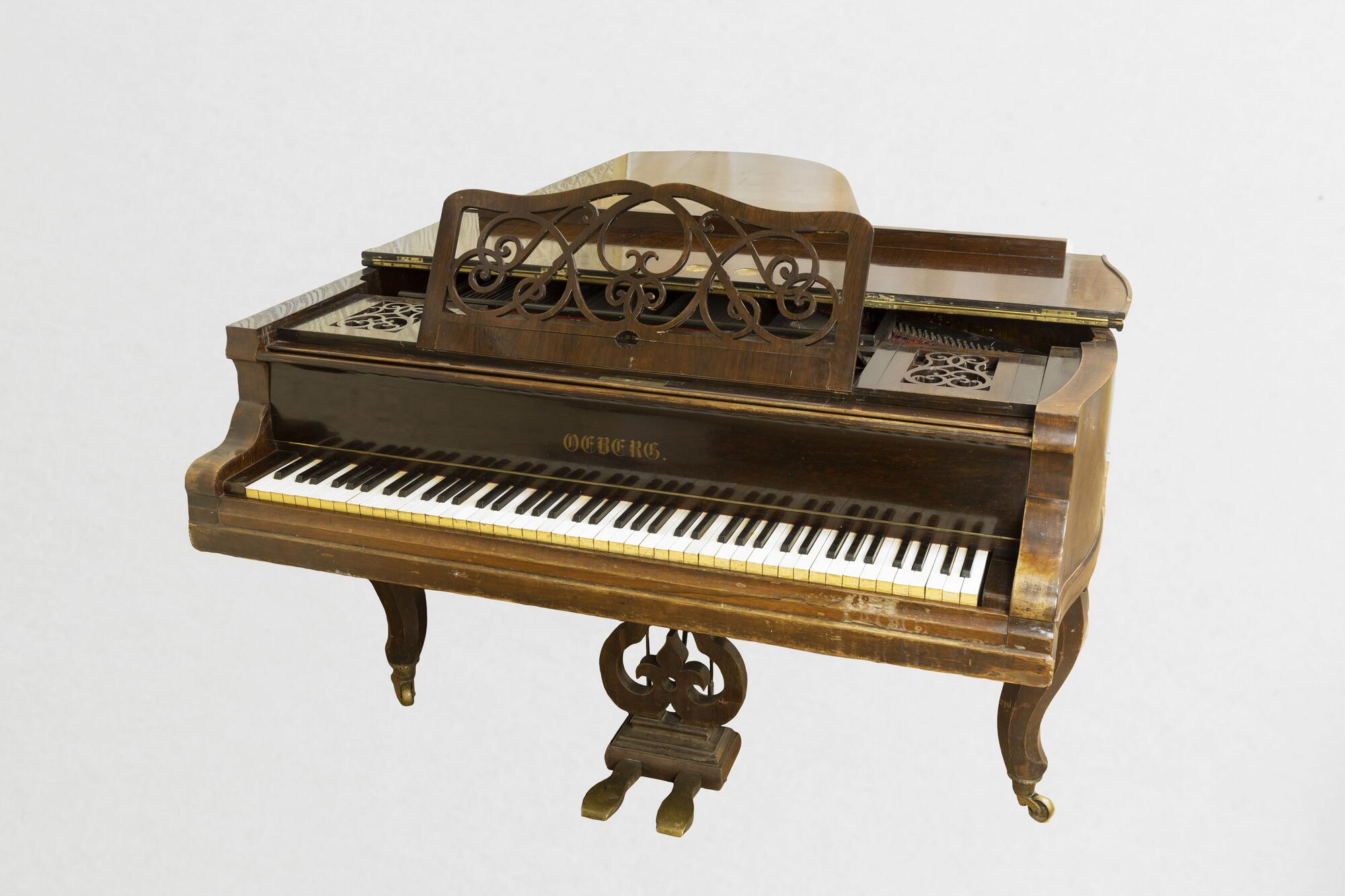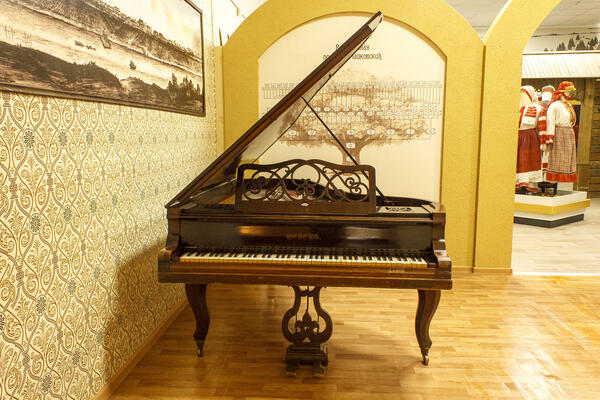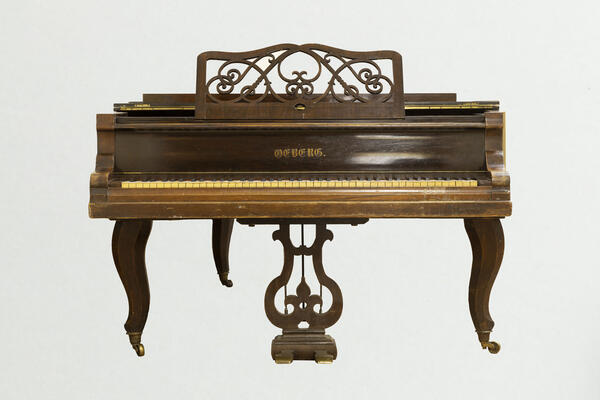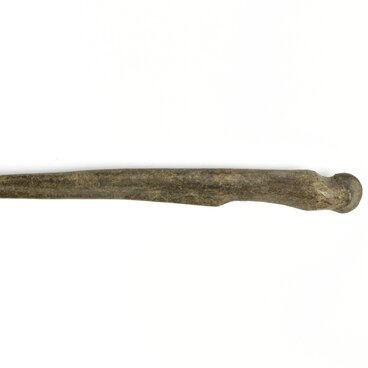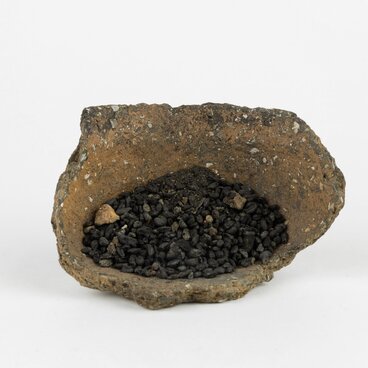A grand piano is a stringed keyboard musical instrument, a kind of piano. Unlike more compact pianos, in grand pianos the strings are horizontal. Grand pianos range in size: there are concert, salon and cabinet ones. The Glazov Museum of Local Lore presents a cabinet grand piano produced in the 19th century at the A. Oeberg Piano Factory. It was founded in 1852 in Moscow and produced high-quality musical instruments until the beginning of the 20th century.
The antique grand piano with a carved walnut music stand, three curved legs and a comfortable ivory keyboard is a vivid example of an instrument of the “golden era” of piano art, which lasted in Russia until the First World War. The walnut lid of the piano is decorated with a double-sided medal with the image of Emperor Alexander II. The founder of the A. Oeberg Factory, Alexander Oeberg was presented with it at the All-Russian Industrial and Art Exhibition of 1861 in Moscow. The medal “For Diligence and Art” was a sign of quality, and the factory minted it for all its pianos. Later, Alexander Oeberg was awarded three more medals and received the title of “Supplier of the Court of His Imperial Majesty.”
The grand pianos and pianos of the A. Oeberg Factory were durable, and had a deep noble sound and rich overtones. Alexander Oeberg’s instruments were popular in Russia due to their official status, impeccable quality, as well as the option to pay for the purchase in installments, which was the first such credit system offered in Russia. The factory also formed a large and affordable rental fund of its musical instruments.
The cabinet grand piano was donated to the Glazov Museum of Local Lore by the descendants of the merchant of the second guild Pyotr Vasiliev, the founder of a vodka factory. It is on display in the exposition hall “In the town of Glazov entrusted to me”, dedicated to Pyotr Fyodorovich Tchaikovsky. The grandfather of the great composer was the first of the Tchaikovsky family to settle in Udmurtia, where Pyotr Ilyich was later born. For 22 years, the government clerk Pyotr Fyodorovich Tchaikovsky served as mayor of the district town of Glazov.
The antique grand piano with a carved walnut music stand, three curved legs and a comfortable ivory keyboard is a vivid example of an instrument of the “golden era” of piano art, which lasted in Russia until the First World War. The walnut lid of the piano is decorated with a double-sided medal with the image of Emperor Alexander II. The founder of the A. Oeberg Factory, Alexander Oeberg was presented with it at the All-Russian Industrial and Art Exhibition of 1861 in Moscow. The medal “For Diligence and Art” was a sign of quality, and the factory minted it for all its pianos. Later, Alexander Oeberg was awarded three more medals and received the title of “Supplier of the Court of His Imperial Majesty.”
The grand pianos and pianos of the A. Oeberg Factory were durable, and had a deep noble sound and rich overtones. Alexander Oeberg’s instruments were popular in Russia due to their official status, impeccable quality, as well as the option to pay for the purchase in installments, which was the first such credit system offered in Russia. The factory also formed a large and affordable rental fund of its musical instruments.
The cabinet grand piano was donated to the Glazov Museum of Local Lore by the descendants of the merchant of the second guild Pyotr Vasiliev, the founder of a vodka factory. It is on display in the exposition hall “In the town of Glazov entrusted to me”, dedicated to Pyotr Fyodorovich Tchaikovsky. The grandfather of the great composer was the first of the Tchaikovsky family to settle in Udmurtia, where Pyotr Ilyich was later born. For 22 years, the government clerk Pyotr Fyodorovich Tchaikovsky served as mayor of the district town of Glazov.
